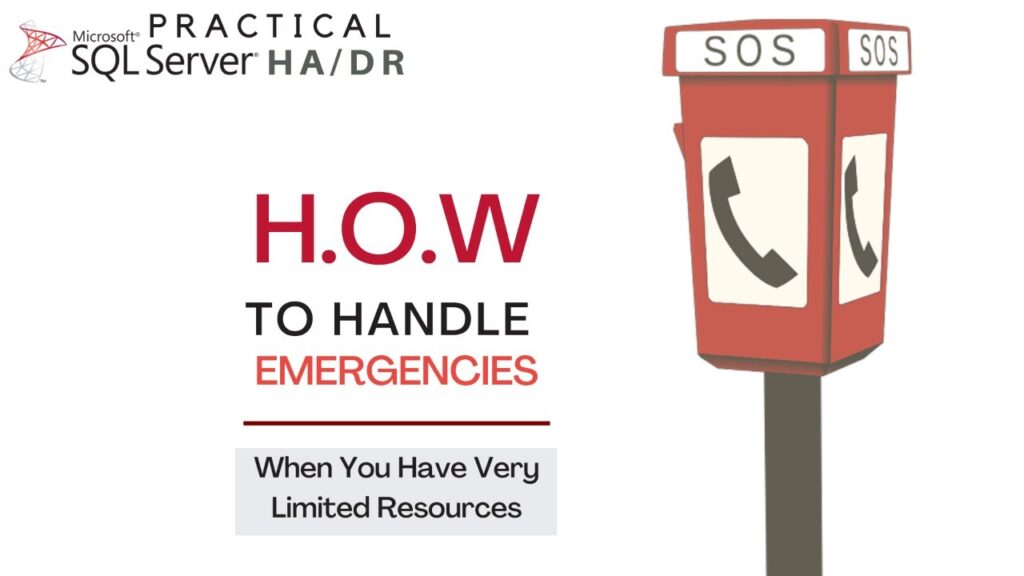We are just coming out of an extended power outage that started this past weekend after a destructive storm ravaged the city. And while we already got power back on, there are other nearby communities that are still either on generators or completely without electricity.
Transmission lines were down, trees uprooted, some were even trapped in their vehicles for hours as power lines came onto them while driving. It’s not every day we experience natural disasters like this storm. And when they do happen, not everyone is prepared to deal with them.
Similarly, emergencies do happen in technology. Whether it’s a hardware failure, a database corruption, or an overheated data center (don’t ask me why I have this specific event on the list), emergencies will happen. It’s never a question of IF but a question of WHEN.
There are severe consequences when you and your team are not prepared to handle these emergencies. Extended outages can cost businesses revenue loss. Reputations are damaged when customers do not get the level of service that they expect.
But that’s just the consequences to the business. How does that affect you?
I’ve seen people burn out after dealing with a stressful emergency for 72 hours straight. I’ve been in war rooms where shouting matches happen while engineers try to deal with the emergency. And I know people who just quit their jobs out of frustration right in the middle of a disaster recovery incident.
Knowing how to handle emergencies can literally make or break your career. And it’s even more challenging when you have very limited resources.
On this week’s episode of the Practical SQL Server HA/DR Show, I talk about handling emergencies – especially when you have very limited resources.
I’ll be doing this on a weekly basis so make sure you keep an eye out for announcements on my social media profiles (LinkedIn | Twitter | YouTube)

